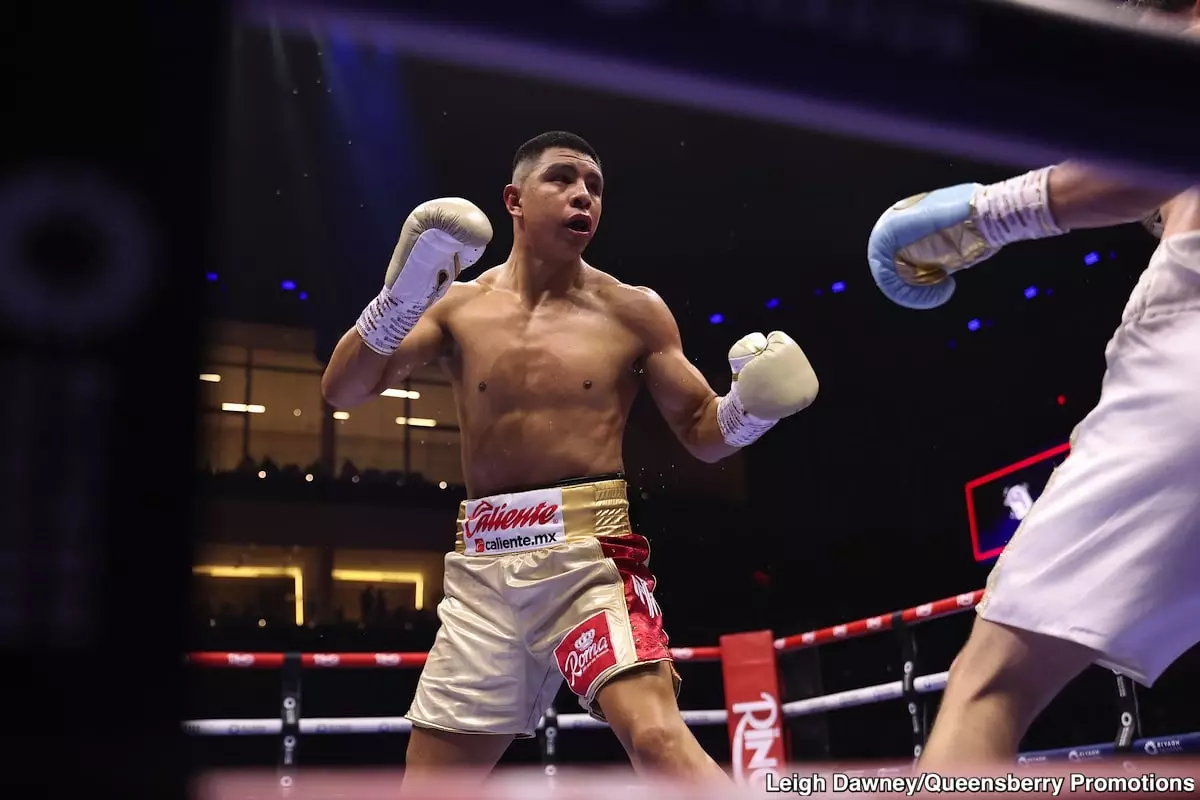The boxing community is currently buzzing with controversy as multiple fighters from Eddy Reynoso’s training camp, including notable names like Jaime Munguia, have tested positive for performance-enhancing drugs. Oscar De La Hoya, a prominent figure in the sport, has openly expressed his skepticism regarding the integrity of the camp, which also includes celebrated champion Canelo Alvarez. With six fighters from the same camp now flagged for doping offenses, the narrative constructed around Reynoso’s leadership is fraught with implications of negligence and ethical failure.
On May 4th, after his victory over Bruno Surace, Munguia’s positive test result raised further eyebrows, not only concerning his trajectory as a fighter but also about the very fabric of trust that sustains boxing. De La Hoya’s incredulity—“somebody is guilty”— poignantly encapsulates the sentiment among fans and analysts who see this as more than just a few bad apples in a barrel. When multiple athletes under the guidance of the same trainer find themselves embroiled in scandal, it raises critical questions about oversight, knowledge, and accountability.
The Weight of Suspicion: A Coach’s Responsibility
The narrative surrounding trainer Eddy Reynoso appears increasingly grim. De La Hoya’s reflection indicates a growing suspicion that speaks volumes about the broader implications for Reynoso’s camp. It’s hard to ignore the fact that athletes’ physiques can dramatically change under careful observation, rendering the idea that a trainer would be oblivious to performance-enhancing drug usage rather incredulous.
Reynoso’s camp has seen not only Munguia but also well-known fighters like Canelo Alvarez and Oscar Valdez entangled in this developmental crisis, which casts shadows over the legitimacy of their accomplishments. As specifically highlighted by De La Hoya, when six fighters test positive, it raises a red flag that cannot be easily dismissed. Fans and fellow boxers alike are left wondering if this is a systemic problem, potentially rooted in either lax training practices or more sinister incentives to gain an edge in the ring.
Reverberations in the Boxing World
The repercussions extend beyond just those directly involved in the doping tests. For fighters like Ryan Garcia, the very thought of returning to Reynoso’s camp is a matter of concern, given the stigma now attached to the environment. The notion that he might become the seventh athlete embroiled in scandal is a nightmare scenario not just for Garcia, but for athletes striving for a clean sport.
As the murmurings grow louder, there’s a palpable pressure on regulatory bodies and promotional entities to re-evaluate their relationships with trainers linked to these controversies. This ongoing crisis not only tarnishes the reputation of Reynoso but might spur broader calls for reform in how these training camps operate, especially concerning the ethical standards of performance enhancement.
Legacy on the Line
What happens when storied trainers find their reputations sullied in this manner? Reynoso’s legacy, built on moments of triumph and the ascent of champions, now teeters on a precarious edge. The boxing world watches closely, gauging the fallout not only on the fighters involved but also on the training ethos prevalent in high-level boxing.
In this difficult landscape, it is up to the fighters, trainers, and officials to confront the uncomfortable truths of performance-enhancing drugs. The stakes are incredibly high, as fans deserve authenticity and dedication to the sport. The current crisis presents a crucial moment to address longstanding issues that threaten to derail the careers of aspiring champions and dignify the sport itself.


Leave a Reply